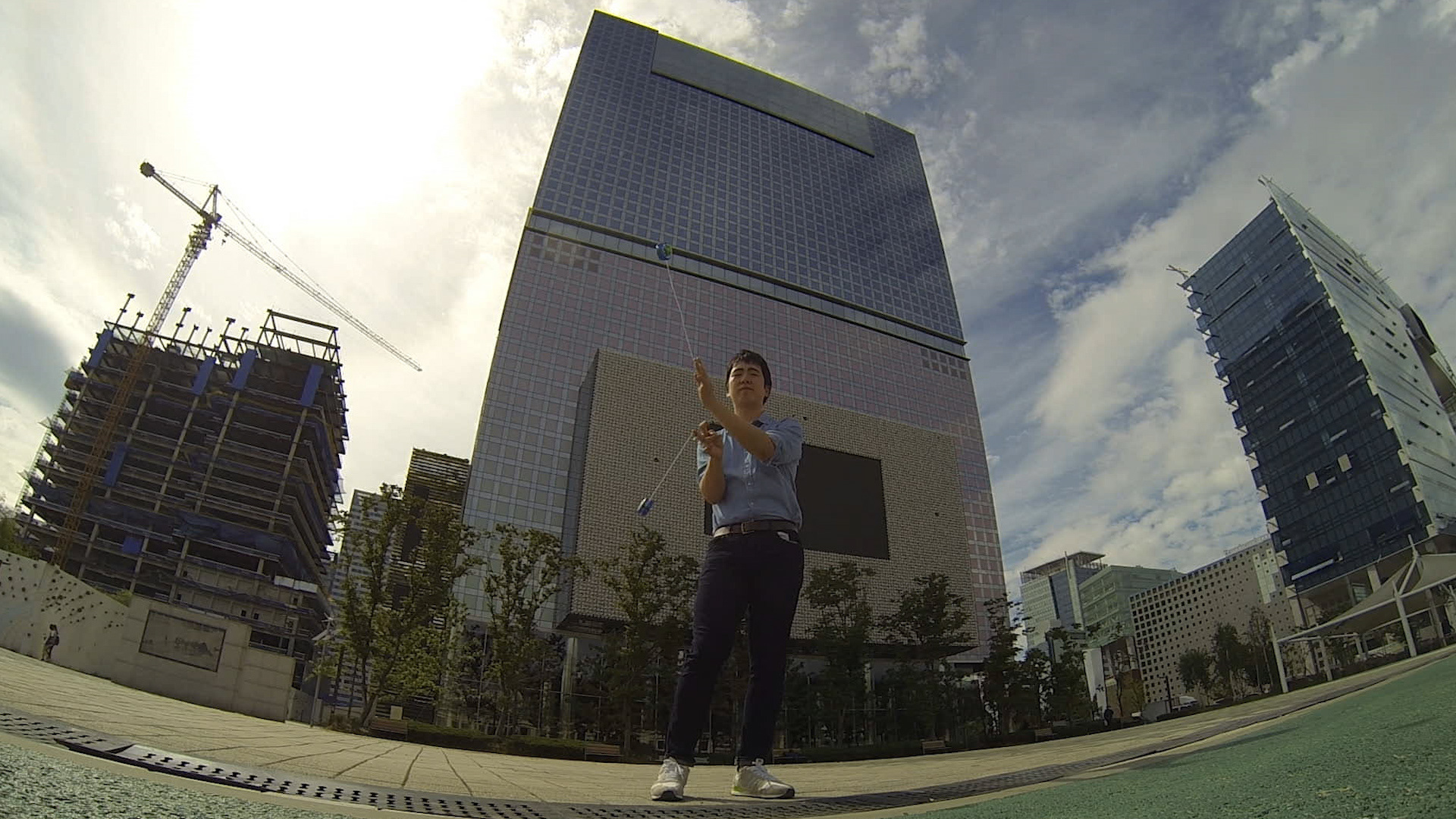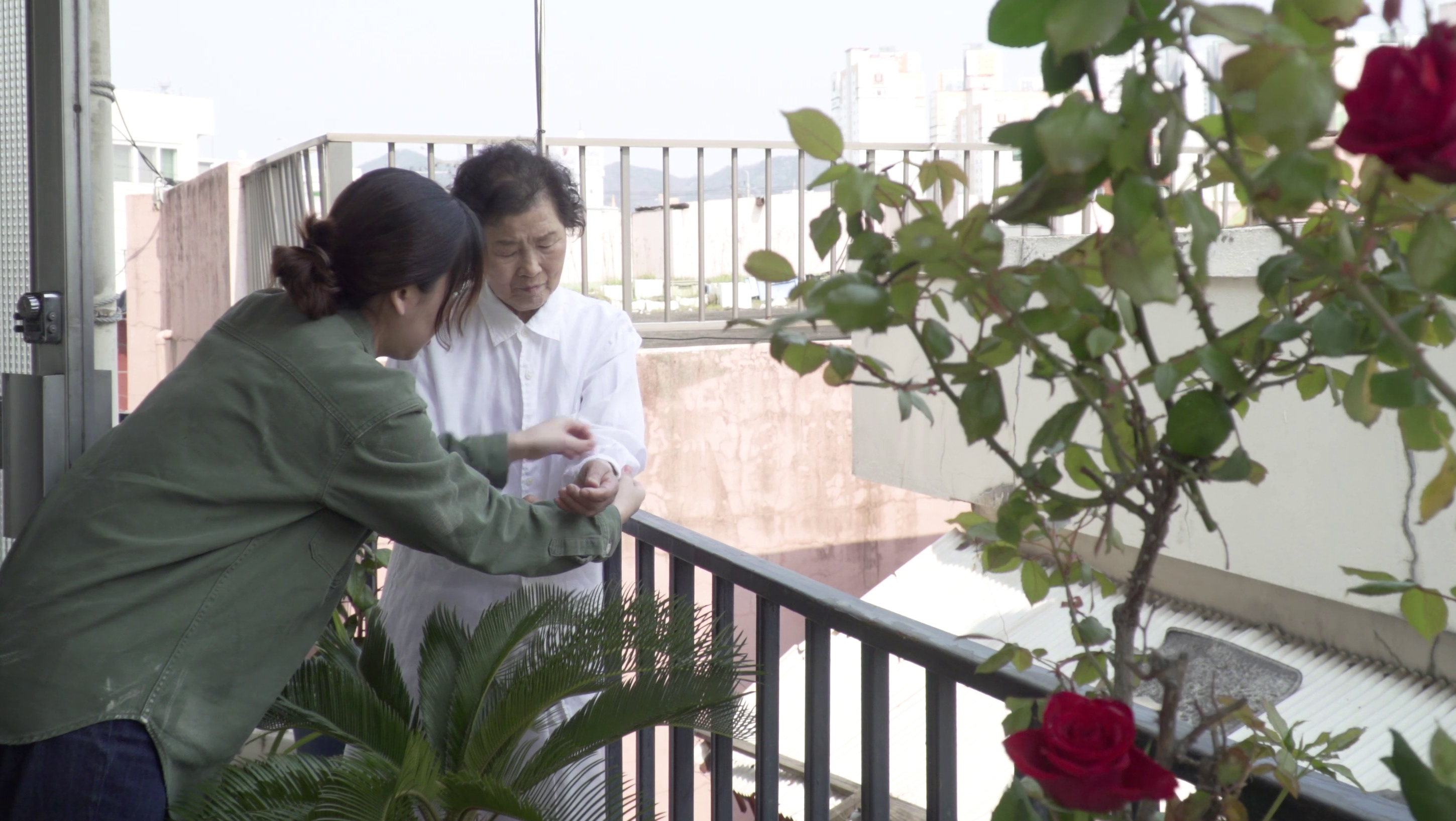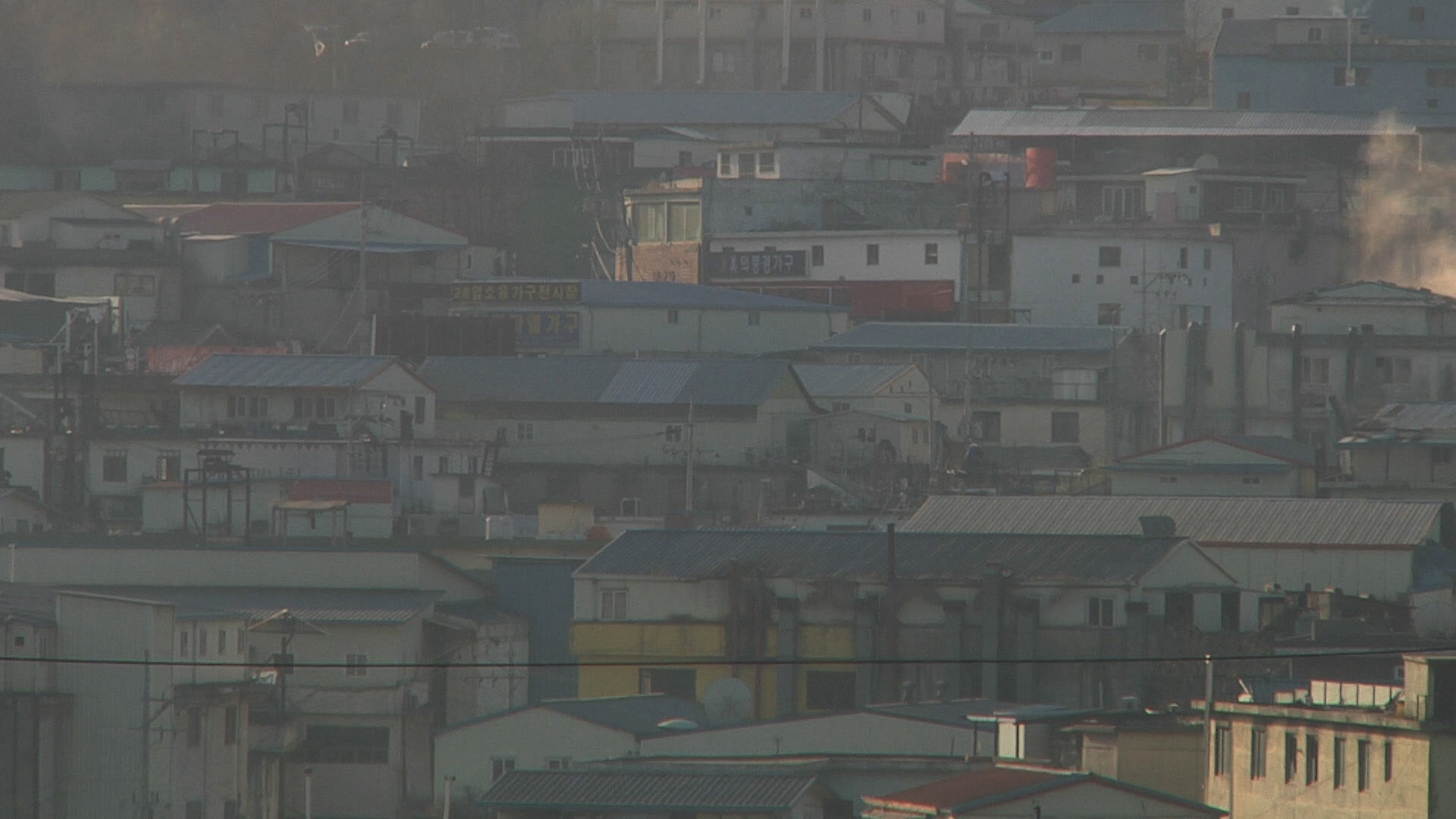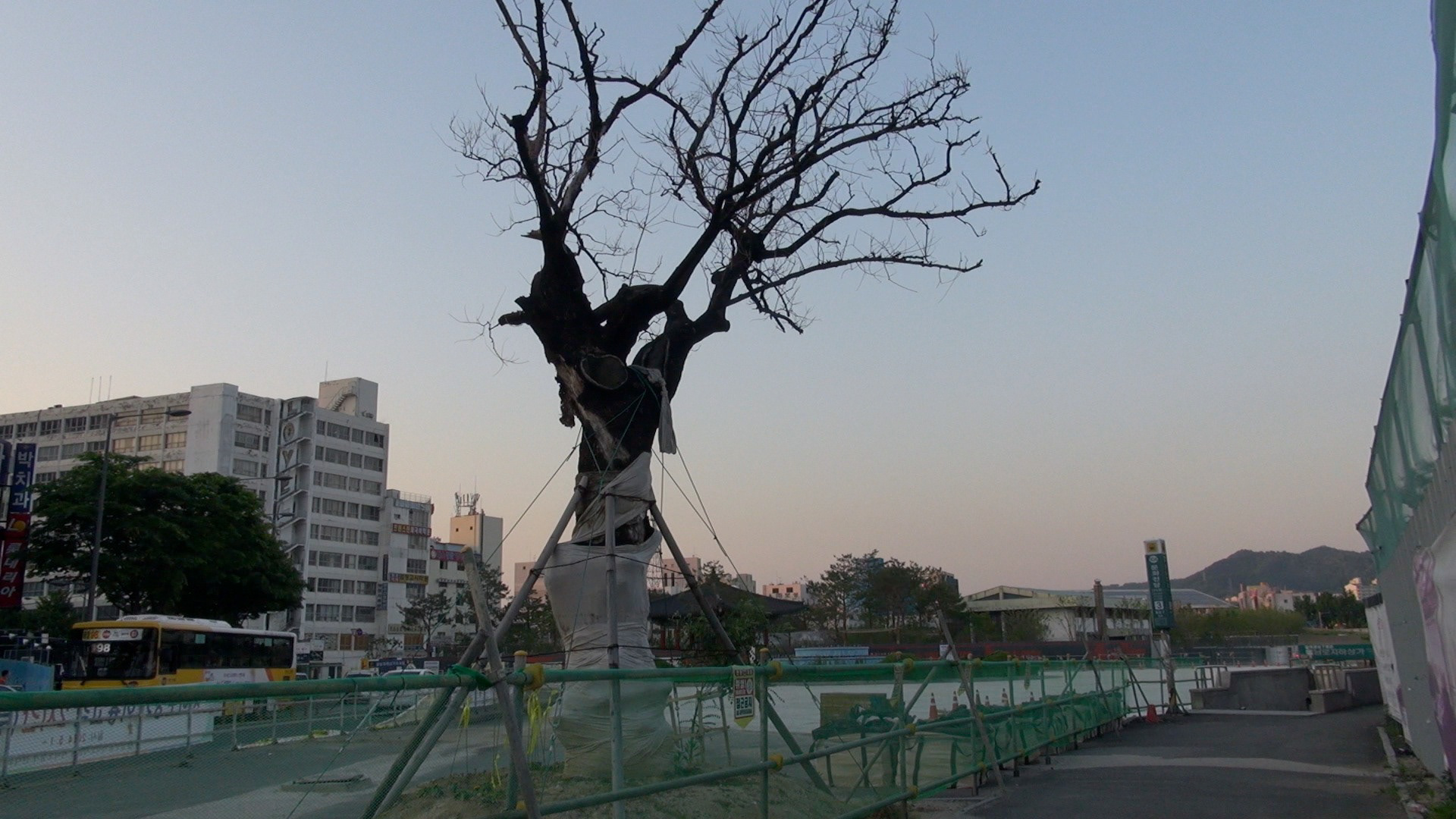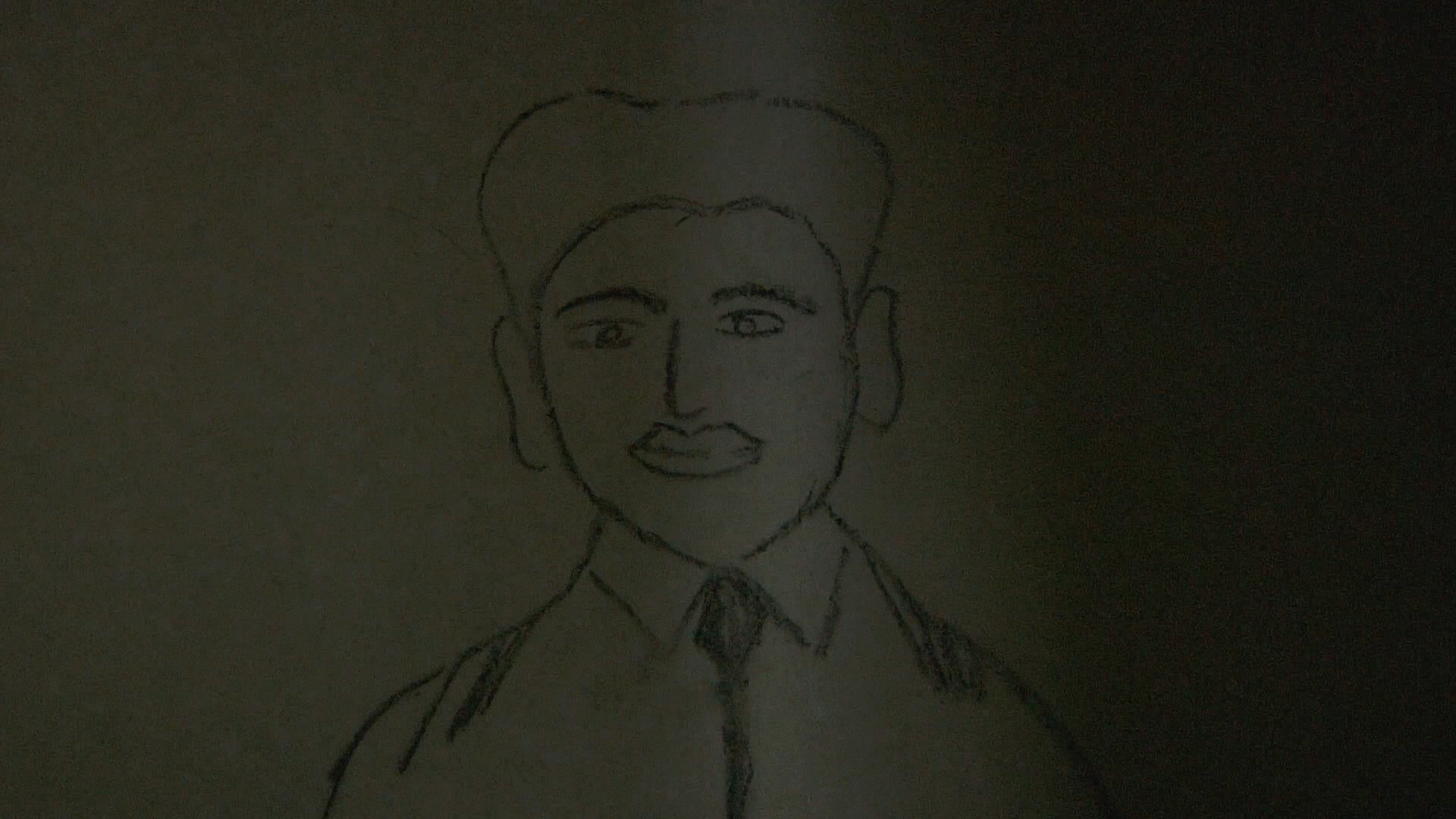My Missing Aunt Review 양양 리뷰
In this powerful exploration of family secrets, a South Korean filmmaker uncovers the hidden story of her aunt, who died by suicide before graduating from college—a relative whose existence was systematically erased from the family memory. Through delicate animation and determined investigation, including conversations with her aunt’s former classmates, director Juyeon Yang discovers the tragedy may have been linked to dating violence, unrecorded and unacknowledged simply because the victim was female. As she reconstructs her aunt’s truncated life through literary remnants and faded photographs, the filmmaker confronts the broader pattern of patriarchal erasure that demands women exist only as obedient daughters, sisters, wives and daughters-in-law. By challenging her family’s uncomfortable silence, Yang constructs both a memorial and an indictment of societal structures that continue to perpetuate and minimize women’s suffering. This courageous documentary transforms personal archeology into political resistance, asking vital questions about whose stories deserve remembrance and why familial peace often comes at the cost of suppressing historical truth.
가족의 비밀에 대한 힘있는 탐사를 통해, 한국의 영화 감독은 대학 졸업 전에 스스로 목숨을 끊었고 가족의 기억에서 체계적으로 지워진 가족, 바로 자신의 고모에 얽힌 숨겨진 이야기를 밝혀냅니다. 양주연 감독은 섬세한 애니메이션과 고모의 친구들과의 대화를 포함한 결단력 있는 조사를 통해, 고모의 비극이 단지 그녀가 '피해를 받은 여성'이었다는 이유만으로 기록되지도 인정받지도 못했다는 사실과 그 죽음이 데이트 폭력과 연관되었을 수도 있다는 사실을 발견합니다. 감독은 고모가 남긴 문학의 흔적과 빛바랜 사진들을 통해 그녀의 중단되었던 삶을 재구성하며, 또한 그녀는 여성이 단지 순종적인 딸, 자매, 아내, 그리고 며느리로만 존재하도록 요구하는 가부장적 지우기의 더 넓은 패턴과 직면합니다. 가족의 불편한 침묵에 도전함으로써, 양주연 감독은 여성의 고통을 계속해서 영속화하고 축소하는 사회 구조에 대한 추모이자 고발을 구축합니다. 이 용감한 다큐멘터리는 개인적 고고학을 정치적 저항으로 변모시키며, 누구의 이야기가 기억될 가치가 있는지, 그리고 왜 가족의 평화가 종종 역사적 진실을 억압하는 대가를 치르며 오는지에 대한 중요한 질문들을 던집니다.
by Gugi Gumilang (Hot Docs Programmer, Hot Docs Program note, https://hotdocs.ca/whats-on/hot-docs-festival/films/2025/my-missing-aunt)
Sometimes, the secrets buried in a family’s past are inadvertently uncovered through conversation, which is sort of what happens in this lovely doc from director Juyeon Yang. A tender and respectful tribute to her aunt, who died by suicide decades ago and was essentially scrubbed from the family’s history as a result, the film blends animation with old photos, interviews with her aunt’s former school friends, and difficult conversations with Yang’s own father, to piece together the story of a talented but quiet artist and poet, whose dreams were stifled by her parents and who found herself in an abusive relationship that may or may not have resulted in her death while still in university. The emotional excavation proves challenging and, in the process, Yang unearths some hurtful truths about the societal and familial expectations placed on South Korean women. But, in making the film, she also provides closure, facilitates understanding, heals many old wounds, and honors her aunt in a way the rest of the family never had before.
때로는 가족의 과거 속에 묻힌 비밀들이 대화를 통해 우연히 드러나기도 하는데, 양주연 감독의 이 사랑스러운 다큐멘터리에서 벌어지는 일이 어느 정도 그렇습니다. 수십 년 전 스스로 목숨을 끊었고 그 결과 가족 역사에서 거의 지워져 버린 고모에게 바치는 다정하고 정중한 헌사인 이 영화는, 애니메이션과 옛 사진들, 고모의 옛 학교 친구들과의 인터뷰, 그리고 양 감독 자신의 아버지와의 힘든 대화들을 혼합하여, 재능 있었지만 조용했던 예술가이자 시인의 이야기를 조각조각 맞춰나갑니다. 그녀는 부모님에 의해 꿈이 억눌렸고, 대학 시절 학대적인 관계에 놓였으며, 이 관계가 그녀의 죽음으로 이어졌을 수도, 아닐 수도 있습니다. 이 감정적인 발굴 작업은 힘겨운 과정임이 드러나고, 그 과정에서 양 감독은 한국 여성들에게 부과되는 사회적, 가족적 기대에 대한 몇몇 상처 주는 진실들을 파헤칩니다. 하지만 영화를 만들면서 그녀는 또한 매듭을 풀고, 이해를 도우며, 많은 오래된 상처를 치유하고, 나머지 가족 누구도 이전에는 하지 못했던 방식으로 고모를 기립니다.
by Vickie on (Film Writer, Moviepie, https://moviepie.com/hot-docs-2025-7-conversations/)
Juyeon Yang’s moving, personal, and introspective documentary My Missing Aunt starts off by looking at familial secrets within her own family, but blossoms into a more sorrowful and sensitive examination of how women were, and in many ways still are, perceived in Korean society. (...) Yang pursues her investigation doggedly, making a loving tribute to a woman she never got to know and someone who shouldn’t have been forgotten or ostracized in death. My Missing Aunt also follows the filmmaker’s own awakening to the roles women are often tasked with pursuing in Korean culture, where they are expected to be good daughters/sisters/mothers/wives instead of independent thinkers with dreams, goals, and desires of their own. My Missing Aunt builds to a moment that rocks Yang to her core and forces her stoic dad to come to terms with repressed feelings of grief, but the film is never salacious or sensational like a true crime documentary. It’s a caring and honest look at why people should always hold their loved ones close and never forget their contributions.
양주연 감독의 감동적이고, 개인적이며, 성찰적인 다큐멘터리 '양양'은 처음에는 감독 자신의 가족 내 비밀을 들여다보는 것으로 시작하지만, 한국 사회에서 여성들이 과거에 어떻게 인식되었고, 여러 면에서 여전히 어떻게 인식되고 있는지에 대한 더 슬프고 민감한 고찰로 확장됩니다. (...) 양주연 감독은 끈질기게 조사를 이어가며, 자신이 결코 알지 못했던 한 여성이자 죽음 속에서 잊히거나 외면당해서는 안 되었을 누군가에게 애정 어린 헌사를 바칩니다. '양양'은 또한 감독 스스로의 각성을 따라갑니다. 한국 문화 속에서 여성들이 종종 부여받는 역할, 즉 자신만의 꿈, 목표, 욕구를 가진 독립적인 사상가이기보다는 좋은 딸/누이/어머니/아내이기를 기대받는 현실에 대한 각성입니다. '양양'은 양주연 감독의 존재를 송두리째 흔들고 그녀의 과묵한 아버지가 억눌린 슬픔의 감정을 받아들이도록 만드는 순간으로 나아가지만, 영화는 결코 선정적이거나 실제 범죄 다큐멘터리처럼 자극적이지 않습니다. 이 영화는 왜 우리가 사랑하는 사람들을 항상 가까이하고 그들의 기여를 결코 잊지 말아야 하는지에 대한 따뜻하고 정직한 시선입니다.
by Andrew Parker (Film Writer, The Gate, https://www.thegate.ca/film/069228/hot-docs-2025-review-my-missing-aunt/)
The film comes together with poetic animation that lyrically tells the story of a young woman trying to find her way in the world but met an untimely end. A young woman whose family thought better to forget, at least outwardly. In telling Jiyoung’s story, Yang found a part of herself that she couldn’t ignore any longer.
이 영화는 시적인 애니메이션과 함께 세상에서 자신의 길을 찾으려 하지만 불의의 종말을 맞이한 한 젊은 여성의 이야기를 서정적으로 풀어냈습니다. 가족들은 적어도 겉으로는 잊어버리는 것이 낫다고 생각했던 젊은 여성. 지영의 이야기를 들려주면서 양주연 감독은 더 이상 외면할 수 없는 자신의 모습을 발견했습니다.
by Rachel Ho (Film Writer, POV: Canada's Documentary Magazine, https://povmagazine.com/my-missing-aunt-review-confronting-family-secrets-and-cultural-norms/)
My Missing Aunt is a powerful Documentary about familial secrets and harmful societal beliefs. South Korean Filmmaker Juyeon Yang uncovers the erased existence of her aunt, who died by suicide before graduating from college. As she confronts family secrets and dating violence, she exposes generations of patriarchal damage inflicted on women to live as “good daughters.” (...) It’s through confronting her dark familial secret that Yang exposes societal expectations, norms, and patriarchal damage in South Korean culture. So what begins as a personal story evolves into an exposé of culture and societal beliefs that must be challenged. Overall, My Missing Aunt is a moving Documentary about honouring those forgotten and ensuring they’re remembered. These women lived and existed, they shouldn’t be erased.
'양양'은 가족의 비밀과 해로운 사회적 믿음에 관한 강력한 다큐멘터리입니다. 한국의 영화감독 양주연은 대학 졸업 전에 스스로 목숨을 끊은, 지워진 존재였던 고모를 발견합니다. 그녀는 가족의 비밀과 데이트 폭력에 맞서면서, 여성들이 '착한 딸'로 살도록 강요하며 여러 세대에 걸쳐 가부장제가 입힌 피해를 폭로합니다. (...) 양주연 감독은 자신의 어두운 가족 비밀과 마주함으로써 한국 문화 속 사회적 기대, 규범, 그리고 가부장제의 폐해를 드러냅니다. 그래서 개인적인 이야기로 시작된 것이 도전받아야 할 문화와 사회적 믿음에 대한 폭로로 발전합니다. 전반적으로, '양양'은 잊힌 이들을 기리고 그들이 기억되도록 하는 것에 대한 감동적인 다큐멘터리입니다. 이 여성들은 살았고 존재했습니다. 그들은 지워져서는 안 됩니다.
By Amanda Gilmore (Film Writer, Mr. WillWong https://www.mrwillwong.com/hotdocs-my-missing-aunt-review/)
<양양>은 감독이 지난 네 편의 단편에서 시도한 ’추적‘의 방법론을 더욱 심화시킨 결과물입니다. (...) 감독은 우연하게 알게 된 가족의 숨겨진 비밀을 그저 개인의 지적 호기심으로만 풀지 않으려 하고, 그렇게 흐르는 것을 경계합니다. 추측은 어디까지나 추측일 뿐, 이젠 결코 알 수 없게 된 것에서는 ’알 수 없음‘을 넌지시 드러냅니다. (...) 이런 과정을 거쳐 다큐가 최종적으로 내딛는 발걸음은, 쉽게 결론을 내리는 대신 그간 쉽게 잊으려 했던 존재에 대한 ’기록‘과 ’호명‘입니다. 필요 이상으로 기억을 키워 박제하는 것이 아니라, 여러 사유를 명목으로 제대로 호명도 되지 않았던 존재를 조금이라도 뚜렷하게 바라보고자 하는 것입니다. 마치 <양동의 그림자>나 <옥상자국>에서 수행했던 작업처럼, 결말부의 ‘기록 작업’은 한국 사회가 그간 계속 쉽게 지워만 오던 과거를 정성적이자, 물적으로 호명하는, 그리고 이러한 움직임이 계속 필요함을 보여주는 하나의 선언입니다.
My Missing Aunt is the result of a deepening of the methodology of ‘tracing’ that the director has attempted in her last four shorts (...) She is wary of unravelling the family secrets she has accidentally uncovered as a matter of personal intellectual curiosity. Speculation is only speculation, and the ‘unknowable’ is blatantly revealed in what can now never be known. (...) The final step the documentary takes after this process is to ‘record’ and ‘call out’ the existence of what we have been trying to forget, instead of drawing easy conclusions. It's not about remembering and taxidermising more than necessary, but about looking at something that hasn't been properly named for various reasons. Similar to the work done in Shadow of the City and The Trail of Grandma's Home, Her 'recording' at the end of the film is a qualitative and physical naming of the past that Korean society has been so easily erasing, and a declaration of the need for such a work.
by 성상민 (Film Critic, https://brunch.co.kr/@skyjet/178)
Juyeon Yang's My Missing Aunt explores a long-forbidden topic-domestic violence-through the story of the director's aunt, who is mysteriously missing from the family albums. Recovering her story becomes a recovery of family relationships, and it involves breaking patriarchal traditions that have long suffocated the truth. Its interwoven narratives of detective work and remaking of family relationships is superbly crafted, and the film will travel well.
양주연 감독의 ‘양양’은 가족 앨범에서 미스터리하게 사라진 감독의 고모 이야기를 통해 오랫동안 금기시되어온 교제 폭력 문제를 탐구한다. 고모의 이야기를 복원하는 과정은 가족 관계를 회복하는 과정이며, 오랫동안 진실을 억압해 온 가부장적 전통을 깨뜨리는 것을 의미한다. 감독의 탐사 과정과 가족 관계의 재구성 과정이 서로 얽힌 이야기는 훌륭하게 만들어졌다. 이 영화는 앞으로도 많은 관객들을 만날 것으로 보인다.
by Patricia Aufderheide (Professor at American University, Filmmaker https://filmmakermagazine.com/125959-jeonju-international-film-festival-2024/)
‘벽장 속의 해골(skeleton in the closet)’이라는 영어 속담이 있다. 누구나 비밀이 있다는 뜻으로 사용되기도 하지만, 본래 뜻은 모든 집의 벽장 속에는 숨겨둔 해골, 즉 어느 가족이나 숨기고 싶은 비밀이 있다는 것이다. “양양”은 숨겨졌던 가족의 비밀을 발견하며 가족 안에서 자신의 자리를 되찾는, 혹은 새로운 자리를 만들어가는 감독의 여정을 담은 작품이다. 가부장제 사회에서 가족은 아버지가 권력을 갖는 지배구조를 존속시키거나 그러한 사회적 규범과 전통에 어긋난 이들의 목소리와 이야기를 묵인하곤 한다. “양양”은 자신에게 생전 들어보지 못했던 고모가 존재했다는 것, 그리고 그 고모가 대학교 졸업을 앞두고 스스로 자살을 선택하여 가족 내에서 절대 거론되지 않았다는 사실을 알게 되면서 시작한다. 이미 숨을 거둔 고모의 이야기를 직접 들을 수는 없지만 옛날 사진, 가족과의 인터뷰 등을 기반으로 고모의 지난 인생에 대한 작은 퍼즐 조각을 모아간다. 흔적 없이 감춰진 이야기를 발굴하고 이에 대답하는 과정을 통해 우리는 세상이 기억해주지 않는 규격 외 이야기에 주목하는 시선을 갖추게 될 것이다.
There is an English proverb, "skeleton in the closet." While it is often used to mean that everyone has secrets, its original meaning is that every house has a hidden skeleton in the closet, that is, every family has secrets they want to keep hidden. The documentary film "My Missing Aunt" portrays the director's journey of discovering hidden family secrets and reclaiming or creating a new place for herself within the family. In a patriarchal society, the family often maintains a power structure where the father holds authority, and it tends to silence the voices and stories of those who deviate from social norms and traditions. This film begins with the director discovering that she had an aunt she had never heard of and that this aunt chose to commit suicide just before graduating from university, a fact that was never mentioned within the family. Although she cannot directly hear her deceased aunt's story, she pieces together fragments of her aunt's past life through old photographs and interviews with family members. Through the process of uncovering stories that were hidden without a trace and responding to them, the audience will develop a perspective that pays attention to unconventional stories that the world does not remember.
by 박로사 Park Rosa (Visla Magazine https://visla.kr/feature/250435/)

